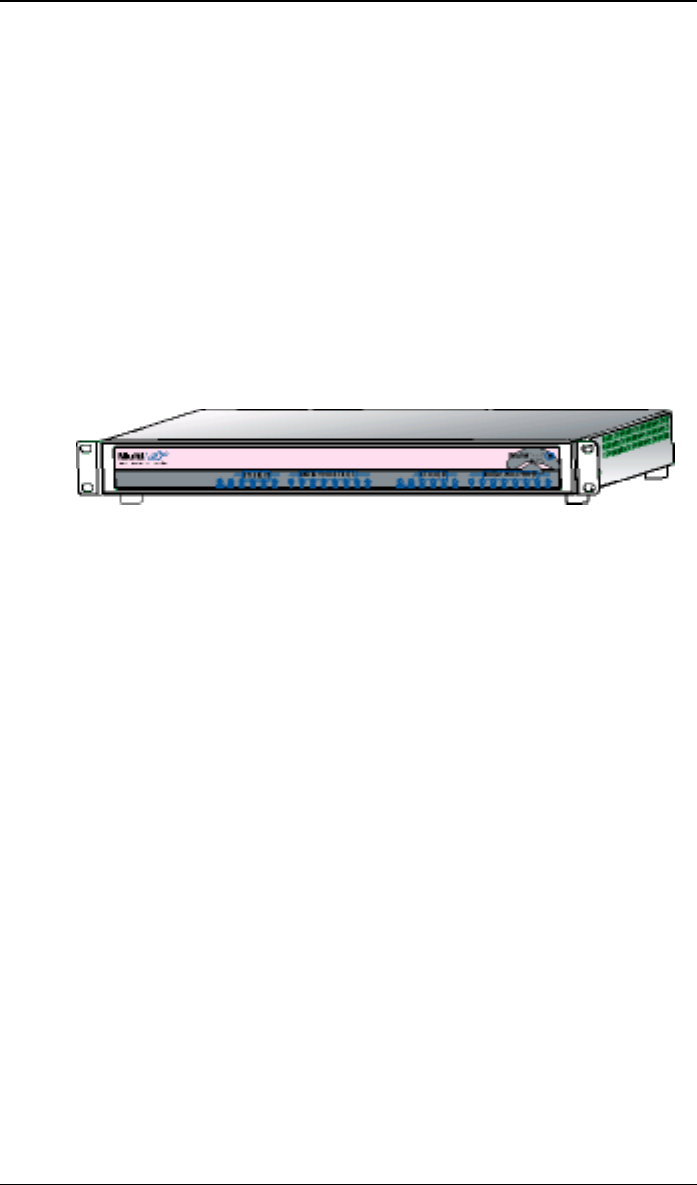
MultiVOIP User Guide Overview
11
Introduction to TI MultiVOIPs (MVP2410 &
MVP24-48)
We proudly present MultiTech’s T1 Digital Multi-VOIP products.
The MVP2410 is a rack-mount model; and the MVP24-48 is an add-on
expansion card that doubles the capacity of the MVP2410 without
adding another chassis. These voice-over-IP products have fax
capabilities. These models adhere to the North American standard of
T1 trunk telephony using digital 24-channel time-division multiplexing,
which allows 24 phone conversations to occur on the T1 line
simultaneously. They can also accommodate T1 lines of the ISDN
Primary Rate Interface type (ISDN-PRI).
Figure 1-2. MultiVOIP MVP2410 LEDs
Scale-ability. The MVP2410 is tailored to companies needing more
than a few voice-over-IP lines, but not needing carrier-class equipment.
When expansion is needed, the MVP2410 can be field-upgraded into a
dual T1 unit by installing the MVP24-48 kit, which is essentially a
second MultiVOIP motherboard that fits in an open expansion-card slot
in the MVP2410. The upgraded dual unit then accommodates two T1
lines.
T1 VOIP Traffic. The MVP2410 accepts its outbound traffic from a T1
trunk that’s connected to either a PBX or to a telco/carrier. The
MVP2410 transforms the telephony signals into IP packets for
transmission on LANs, WANs, or the Internet. Inbound IP data traffic
is converted to telephony data and signaling.
When connected to PBX. When connected to a PBX, the MVP2410
creates a network node served by 10/100-Base T connections. Local
PBX phone extensions gain toll-free access to all phone stations directly
connected to the VOIP network. Phone extensions at any VOIP location
also gain toll-free access to the entire local public-switched telephone
network (PSTN) at every other VOIP location in the system.
When connected to PSTN. When the T1 line(s) connected to the
MVP2410 are connected directly to the PSTN, the unit becomes a Point-
of-Presence server dedicated to local calls off-net.


















